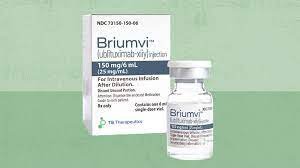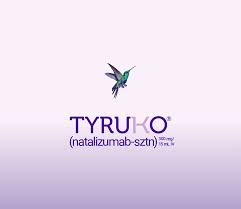Did you know that multiple sclerosis (MS) affects millions of people all over the world? MS is a condition where the immune system attacks the protective covering of nerves, leading to symptoms like difficulty moving and significant changes in how well people can function daily. This disease strikes people between 20 and 50 years old and impacts over 2.8 million people globally.
Recently, the FDA approved two new Multiple Sclerosis treatments. In January 2023, a medication called Briumvi (ublituximab-xiiy) was approved. Not long after, in August 2023, Tyruko (natalizumab-sztn), which is like the well-known drug Tysabri, also received approval.
These new treatments are big news because they offer hope for better disease control.
Are you curious about how these new MS medications can improve life for those with MS? Keep reading as we dive into the benefits of these new therapies and explore why they're so important.
Understanding Multiple Sclerosis

What is Multiple Sclerosis (MS)?
Types of MS:
- Isolated Syndrome (CIS):
- The first episode of symptoms was due to nerve inflammation.
- It may or may not lead to more episodes.
- Relapsing-Remitting MS (RRMS):
- Most common form.
- Episodes of symptoms (relapses) followed by recovery periods (remissions).
- Progressive MS:
- Primary Progressive MS (PPMS) and Secondary Progressive MS (SPMS).
- PPMS: Worsening symptoms from the beginning, without relapses or remissions.
- SPMS: Starts as RRMS, then becomes worse.
Common Symptoms:
- Numbness or weakness, often on one side of the body.
- Blurry or double vision.
- Pain and tingling sensations.
- Problems with coordination and balance.
- Fatigue and dizziness.
Do you know anyone suffering from Multiple Sclerosis? Connect with the best neurosurgeons in India and take the first step towards recovery.
How is MS Managed?
- Medications: To slow the disease's progress and manage relapses.
- Rehabilitation: Physical therapy to help with movement and occupational therapy for daily activities.
- Supportive Therapies: Help with emotional and mental health challenges.
Latest FDA-Approved MS Medications
1.Briumvi (ublituximab-xiiy)

What is it?
- Briumvi is a type of medication known as an anti-CD20 monoclonal antibody. It targets specific cells in the immune system that can cause damage in multiple sclerosis.
- Main Benefits: Briumvi has been shown to reduce the number of relapses, or flare-ups, that a person with MS might experience.
- How it's given: Patients receive Briumvi through an IV infusion. The first dose lasts about four hours, with a second two weeks later. After that, it's given every six months, each session lasting about one hour.
- FDA Approval Year: Briumvi was approved by the FDA in January 2023.
2.Tyruko (natalizumab-sztn):

What is it?
- Tyruko is a biosimilar to an existing MS drug called Tysabri. A biosimilar is almost identical to an original FDA-approved drug, but it is usually cheaper.
- Cost-Effective: Tyruko provides similar effectiveness at a lower cost, making it more accessible to patients.
- Usage: This treatment is also given as an IV infusion, once every four weeks, to help manage relapsing forms of MS.
- FDA Approval Year: Tyruko was approved by the FDA in August 2023.
These new treatments provide more options for managing multiple sclerosis, improving how patients manage their symptoms and maintain their lifestyle.
Advantages of latest treatment for multiple sclerosis
Better Results:
- Briumvi (ublituximab-xiiy) and Tyruko (natalizumab-sztn) help reduce the number of times MS symptoms worsen. This means patients might experience fewer problems with vision, muscle strength, and coordination.
- Briumvi has been shown to decrease signs of MS on brain scans, suggesting it may slow down the disease.
Easier to Use:
- Briumvi must be taken only twice a year after initial treatments, making it easier for patients because they visit the hospital less often.
- Tyruko offers a familiar treatment routine with a once-a-month IV infusion, increasing access due to its lower cost.
Cost-effectiveness:
- Tyruko, being similar to an existing drug but cheaper, can help reduce treatment costs, making it more accessible.
- A lower frequency of treatments with Briumvi could also mean saving on hospital visits and related costs.
Improves life quality:
- Fewer relapses from these new treatments can help patients keep a more normal daily life, causing less disruption to work and personal activities.
- Slowing down the disease can improve patients' physical and mental abilities for longer, helping them stay independent.
- The simple treatment schedules, especially with Briumvi, mean patients spend less time on medical care and more on enjoying life.
These new therapies not only help manage MS but also aim to improve the lives of those affected.
Considerations and Safety of Mew MS Treatment
Potential Side Effects:
- Briumvi (ublituximab-xiiy) can cause infusion-related reactions like fever, chills, or rashes. More serious side effects include an increased risk of infections due to its impact on the immune system.
- Tyruko (natalizumab-sztn), as a biosimilar to Tysabri, carries similar risks, including the possibility of progressive multifocal leukoencephalopathy (PML), a rare but serious brain infection. It also may cause liver issues and weaken the immune system.
Limitations of Treatments:
- Both drugs must be carefully monitored for infections and other serious side effects.
- There may be patients for whom these drugs are not suitable due to pre-existing conditions or other health concerns.
Accessibility and Cost Issues:
- Cost: While Tyruko might offer a cost-effective alternative to Tysabri, it still might be expensive for some patients without comprehensive insurance coverage.
- Availability: Access to these treatments can vary depending on geographical location and local healthcare policies. Some patients might not have easy access to healthcare facilities that administer these infusions.
- Insurance Coverage: Insurance approval can be a hurdle, with some insurers slow to cover newer, more expensive treatments.
These considerations are crucial for understanding the treatment landscape for MS and need to be discussed with healthcare providers to tailor treatments to individual patient needs and circumstances.
The Future of MS Treatment
What's Next in MS Treatments?
Research in multiple sclerosis (MS) treatments is moving fast, promising even better ways to manage the disease soon.
Upcoming Treatments to Watch:
- Stem Cell Therapy: Scientists are exploring stem cell therapy for MS to restart the immune system and repair nerve damage.
- Neuroprotective Drugs: These are developed to protect the nervous system and slow the disease's progression.
- BTK Inhibitors: These new drugs could reduce inflammation and protect nerve fibers, changing how we treat MS.
Tech Innovations:
- AI and MS: Artificial intelligence might soon help doctors diagnose MS more and predict how it will progress, making treatments more personalized.
- Better Imaging Tools: New types of brain scans could let doctors see MS changes more, helping them decide the best treatment for each person.
Ongoing Research:
- Clinical trials continue to test new treatments to see how effective and safe they are. This research is vital for discovering better options for people with MS.
The future looks hopeful with these developments, offering new ways to tackle MS more.
Concerned about how these treatments might work for you or want to learn about your options? Get in touch with us for expert opinion
Conclusion
New treatments and ongoing research are crucial in the battle against multiple sclerosis (MS). They offer hope by improving symptom management and slowing the disease's progression, enhancing the quality of life for those affected. Patients and caregivers must stay informed about the latest advancements and consult healthcare professionals. These experts can provide tailored advice, ensuring treatment plans are optimized to meet individual needs.
Reference
https://pubmed.ncbi.nlm.nih.gov/36920653/
https://www.accessdata.fda.gov/drugsatfda_docs/label/2023/761322s000lbl.pdf






